Sometimes, I’m doubting myself.
Questions come to my mind:
Are we reading the same book?
Are out there other versions of the Quran I’m not aware of?
If it was the case, it could explain some Muslim behaviors.
This article is for the majority of Muslims; the everyday Muslim.
The one who’s tired of these cycles of insulting the Prophet and killing in his name; who doesn’t want to be associated with criminals or feel guilty to embrace Islam; the one who wants to live in peace and be respected for who he/she is.
For decades now, Muslims find themselves regularly in this familiar scenario.
They are sandwiched between people/institutions labeling them and terrorists representing them to the world.
I don’t claim to have the solution to break free from this never-ending cycle, but I believe Muslims could have a better response.
In the end, one-fifth of the world population has much more power than all media combined!
So how should we respond when our Messenger is insulted?
Before answering, allow me to tackle two questions that, I hope, will help us gain more clarity about the attitude to adopt.
Are Muslims Too Sensitive?
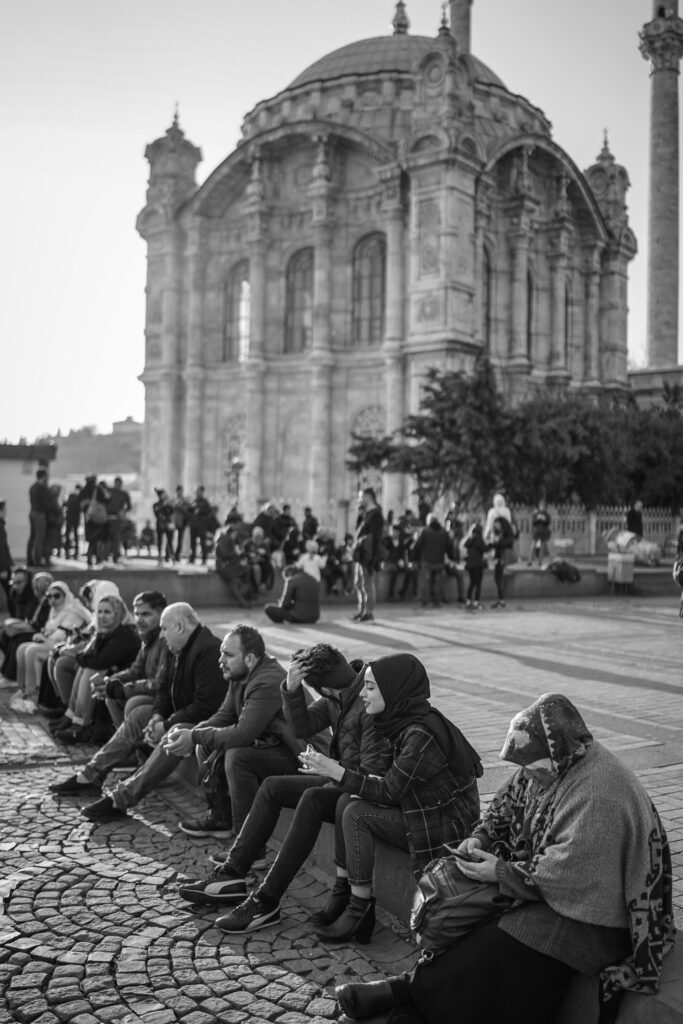
Muslims and non-Muslims alike can start a fight for a funny look toward their girlfriend or wife.
What about someone who insults the person you care the most about—your spouse, your family, your parents?
I’m asking this question because some say Muslims shouldn’t be offended.
It’s just some drawings and some words. Not a big deal.
Well, if you feel nothing about dishonoring your family, you are abnormal.
Any normal human being would be offended and not tolerate insults towards their families.
For Muslims, the Prophet (PBUH) has a higher status than their own families.
So, Muslim, if you are offended, you’re not crazy. You are normal.
The problem begins with our response: Are we responding with honor or in a way that attaches more shame to the name of the Prophet?
The non-Muslims don’t know the Messenger as we know him.
Very few will go out of their way to research the prophet and Islam.
And we can’t blame them for that. No one has time.
Muslims are not different. They don’t go out of their way to learn about other religions and cultures.
How non-Muslims think of the Prophet (PBUH) is a reflection of how they see us.
And the reasoning is pretty simple:
Muslims act badly= their teaching is bad= their teacher is bad.
How Did the Prophet Use to Respond to Offenders?
From the Quran
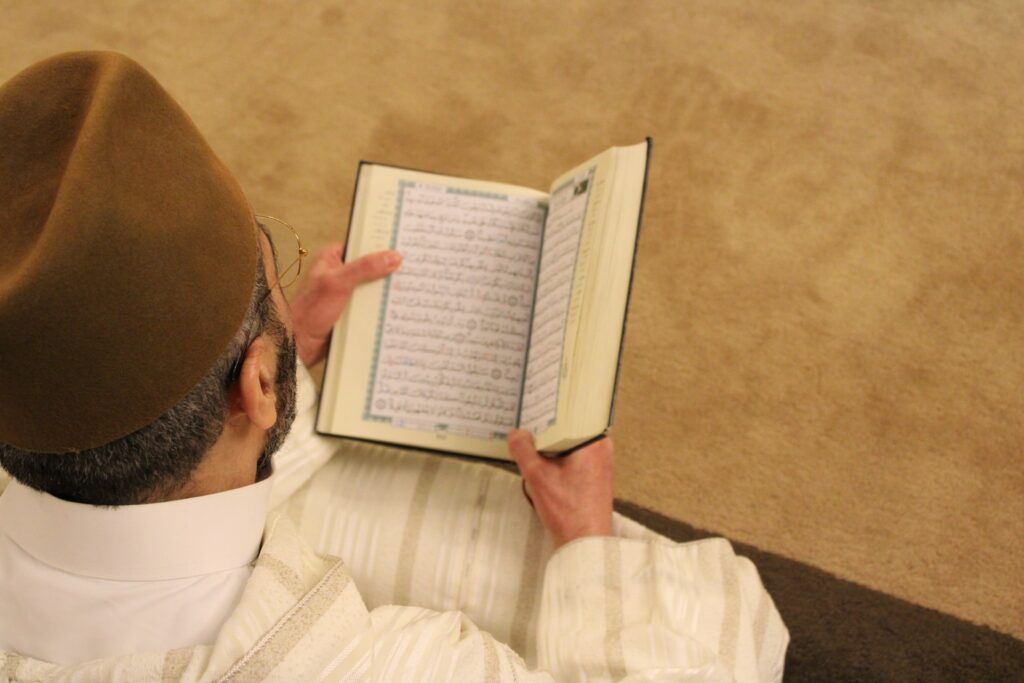
Muhammad (PBUH) is not an exception. All prophets were mocked, insulted, or hurt.
What was their response? To kill people?
No. Because It doesn’t suit the prophets to act this way. In the end, they are the messengers of God.
If tomorrow you stab someone because he insulted you, no judge will take your side. Insulting doesn’t equal stabbing.
Is there more fair, just, and merciful than God?
If God commands his Messengers to kill for words, He stops being worthy of worship. Period.
In many places in the Quran, we find how the Prophet (PBUH) should respond:
Be gracious, enjoin what is right, and turn away from those who act ignorantly.
[Quran 7:199]
Be patient ˹O Prophet˺ with what they say, and depart from them courteously.
[Quran 73:10]
Indeed, messengers before you were rejected but patiently endured rejection and persecution until Our help came to them. And Allah’s promise ˹to help˺ is never broken. And you have already received some of the narratives of these messengers.
[Quran 6:34]
You are sure to be tested through your possessions and persons; you are sure to hear much that is hurtful from those who were given the Scripture before you and from those who associate others with God. If you are steadfast and mindful of God, that is the best course.
[Quran 3:186]
The Quran is very rational, not emotional.
We don’t answer insults with a fight.
From the Life of the Messenger
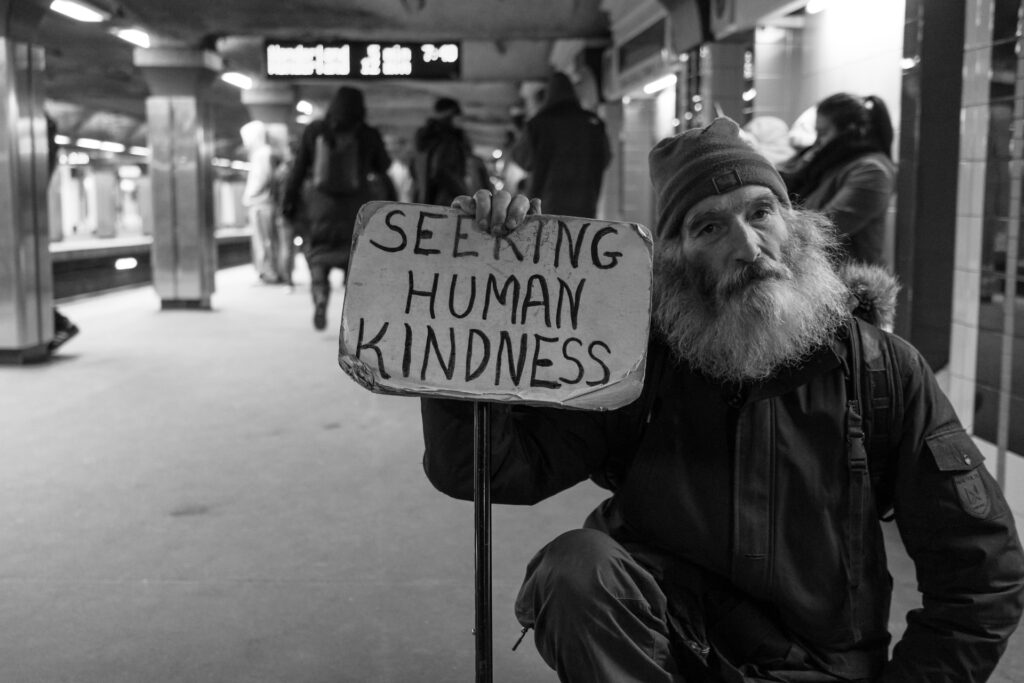
The attitude to adopt is clearly stated in the Quran. And the life of the Prophet confirms it.
In the year of sadness, the Prophet lost his protector and best friend—his uncle Abu Talib and wife Khadija.
The aftermath was an invitation for Quraysh to intensify their bad treatment of the Messenger.
Once, a passer-by threw animal entrails into his cooking pot.
On another occasion, Uqbah, the stepfather of Uthman, threw over him while he was praying the blood-ridden and excrement-covered entrails of a sheep.
These are just a few bad treatments of Quraysh. And they were nothing compared to what happened in Taif.
With Quraysh becoming closed to his message, the Prophet (PBUH) went to Taif to try a new audience and seek support.
The Prophet shared his message with the three leaders of Taif.
They didn’t stop at rejecting and ridiculing him.
As the Prophet (PBUH) began to leave Taif, the tribe chiefs aroused the crowd, unleashed their dogs, and got their children to attack the Messenger. They threw stones at him causing him injury and bleeding.
When he finally found refuge, the angel Gabriel offered him to destroy the people of Taif.
The Prophet refused and asked God to forgive them. He was hoping that the next generation of Taif people would be different.
These acts against the Prophet (PBUH) weren’t some insults or drawings. They were physical attacks. And yet, the Prophet never sought revenge.
We can argue that he didn’t have the power to seek revenge at the beginning of his mission. But we all know that when he conquered Mekka, he didn’t act vengefully.
This is our Messenger!
How Much Do You Love the Prophet?
Killing: a Counterproductive Response
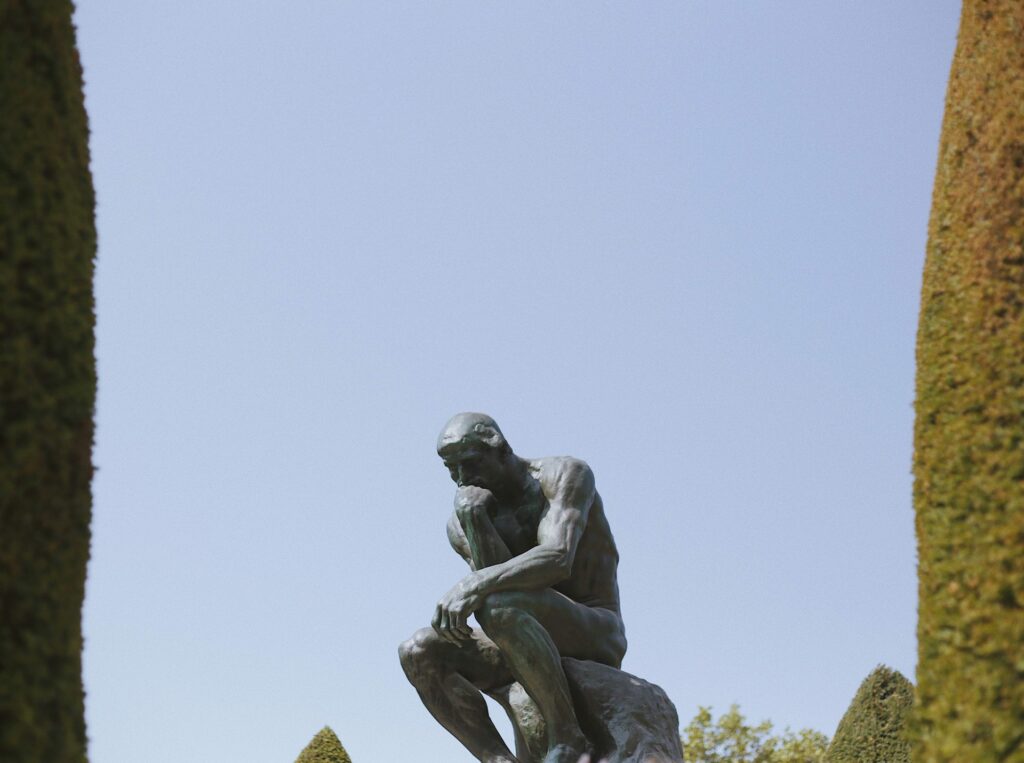
Muslims are supposed to be people of thinking. Or at least, this is what our book invites us to do.
We don’t even need the revelation to know that killing is a counterproductive response.
Defending the honor of the Prophet (PBUH) by killing innocent people is mindless.
The Prophet (PBUH) is already accused to be a killer, a terrorist, and a demolisher.
By killing, do we confirm the accusations against him or dissipate them?
There are limits to what any population can tolerate.
After crossing a tipping point, they will be no refuge possible for Muslims in the West.
This is probably what terrorists are looking for.
They want to force other Muslims to either join them or to get oppressed at the hands of the West.
We can already see the effects of killing in the sympathy the world has towards us.
Do you remember the sympathy the world had for the Palestinian cause?
Now think about the attention the Rohingya’s genocide or the Uyghurs’ concentration camps are having.
There is no comparison possible. Terrorism came in between them.
Caricatures, words, insults, or the Satanic Verses don’t kill.
The honor of the Prophet is not in seeking revenge.
The Honorable Answer
We don’t defend the Prophet as we wish; we defend him the way he taught us to do.
One of the smartest answers out there is coming from Idriss Aberkane, a French teacher of neuroscience.
Rene Magritte, the Belgium artist, inspired his answer.
In his painting of a pipe, Magritte wrote “Ceci n’est pas une pipe“, which means “This is not a pipe”.

The idea behind is a representation of an object is not the object.
The same idea applies to the caricatures of the Prophet.
They are representations, they are not the Prophet.
Allah’s words are above our feelings.
We’re supposed to answer the way we are taught.
By ignoring the insults, showing resilience, and forgiving.
Islam is a battle of ideas. It doesn’t need violence to win.
God set the freedom of belief.
An honorable answer doesn’t come from emotional reactivity to every publication or insult but from self-control.
Centuries ago, Epictetus, the Greek stoic philosopher, expressed the most efficient strategy.
We need to separate what we can control from what we cannot control.
We cannot stop others from speaking their mind, but we can be the ambassador of the Prophet (PBUH).
You Are the Media!
The Prophet (PBUH) said:
Whoever defends the reputation of his brother, Allah will defend his face from the Hellfire on the Day of Resurrection.
[Al-Tirmidhi]
If this is the reward for defending a brother/sister, imagine the reward for defending the Messenger of God!
Defending the honor of the Prophet must emulate his teachings.
His name and followers don’t need more shame and hatred.
The Prophet is mainly misrepresented because of how Muslims behave.
The best answer is in the way we carry ourselves.
I expressed a similar idea in a LinkedIn post called “Muslims are so predictable”.
The non-Muslims know the prophet through us.
And the way to counter the negative image we have in the world is to be the media.
Being the ambassador of the Prophet (PBUH) is in our control.
Whether it’s in the neighborhood or in the country we’re living in, at work, or during our interactions with others, we can do our best to display the teachings of the Prophet.
Non-Muslims don’t care about the verses of the Quran or hadiths of the Prophet. What they believe is what they see.
Be the exception that, when your non-Muslim friend, neighbor, or colleague hears something bad about Islam, he/she would say: “This is not totally true. I know a Muslim who’s different from this negative description.”
We don’t need either to wait for all Muslims to behave the same.
Just like the hummingbird story, we do the best we can.
In the end, we won’t be asked about what other Muslims did, but about our own actions.
As Gandhi said:
Be the change you wish to see in the world.
Final Thoughts
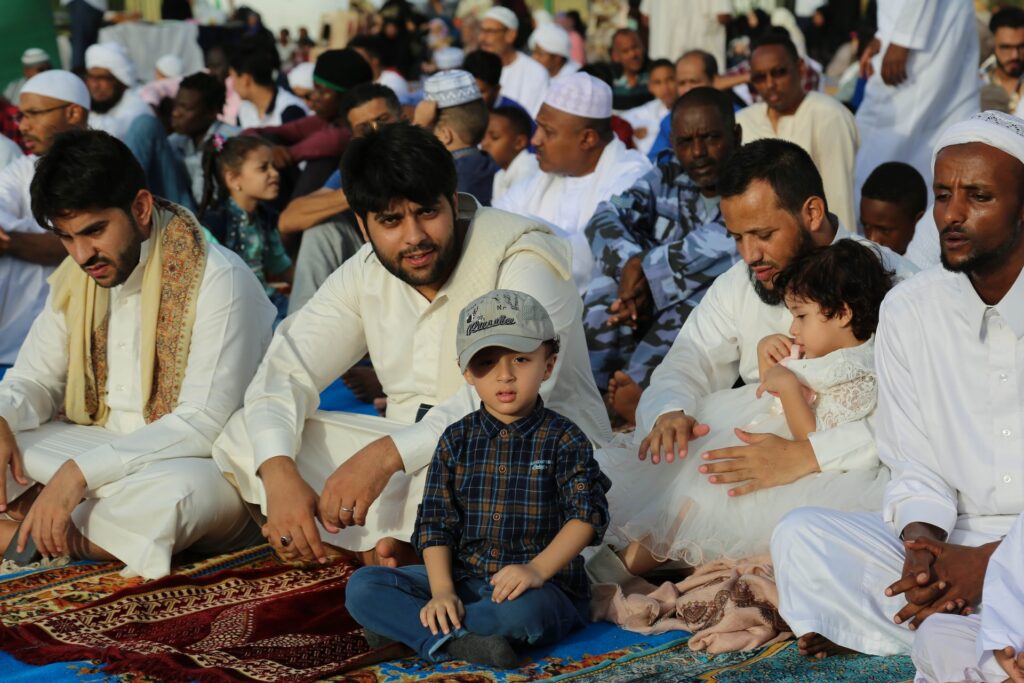
The Prophet (PBUH) was in a society deeply rooted in the ways of their ancestors. It was a tough audience.
But ultimately, he changed them with the words of God and the way he carried himself.
For 23 years, the Prophet (PBUH) was educating the best generation of Muslims.
He taught them about God, self-discipline, mindset, the purpose of life, their place in society, etc.
We can learn from the change process of the first Muslims and adapt it to our time.
Instead of focusing on what non-Muslims said or published, we need to shift our focus to educating Muslims.
The priority is educating ourselves, helping others do the same, and incrementally becoming better day in and day out.
And the Prophet’s teaching method gives us a blueprint to start.
Article posted: 15 November 2020
Popular Articles
- 7 Lessons from Luqman that Will Make You Wise
- How to Enjoy Salat and Make it Meaningful
- Mongols Invasions: Some Forgotten Lessons to Today’s Muslims
- For or Against Vaccines? That’s Not Really the Question
- Are Muslims Meant to Be Sleep Deprived?
- Islamic Psychology: A Model Where Faith Has Its Place
- Muslims Judging Each Other: Why and How to Be Less Judgy
- The Certainties of Muslims in an Uncertain World
- Allah According to Allah: The Beauty Behind the Verse of Light
- Blindness: From the Invisible Gorilla to the Quranic Perspective
- How to Make People Change their Mind: Persuasion!
